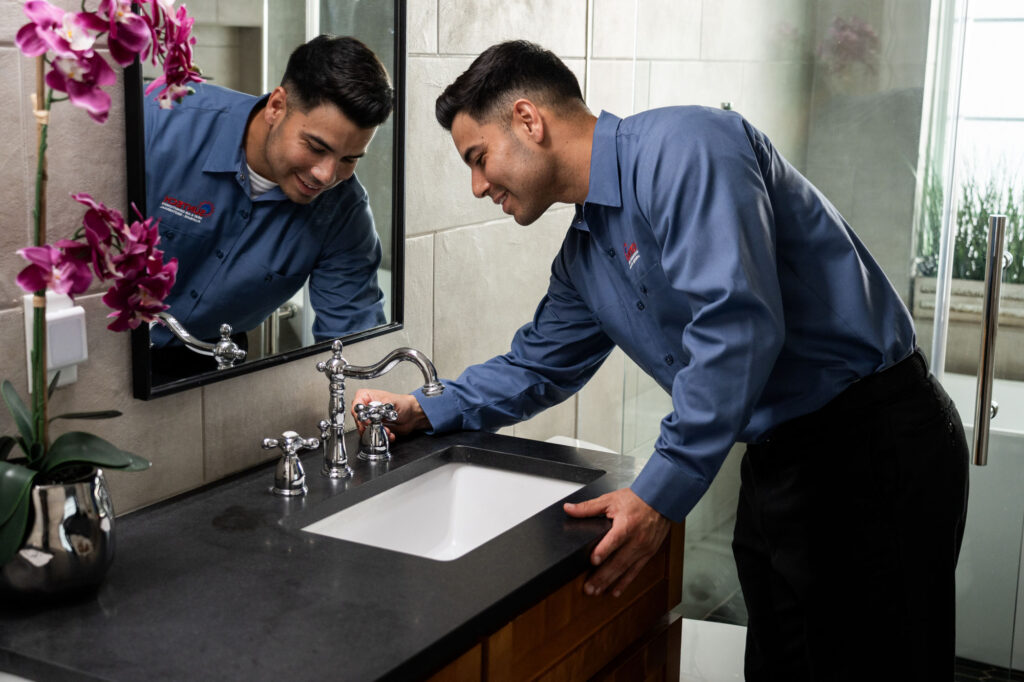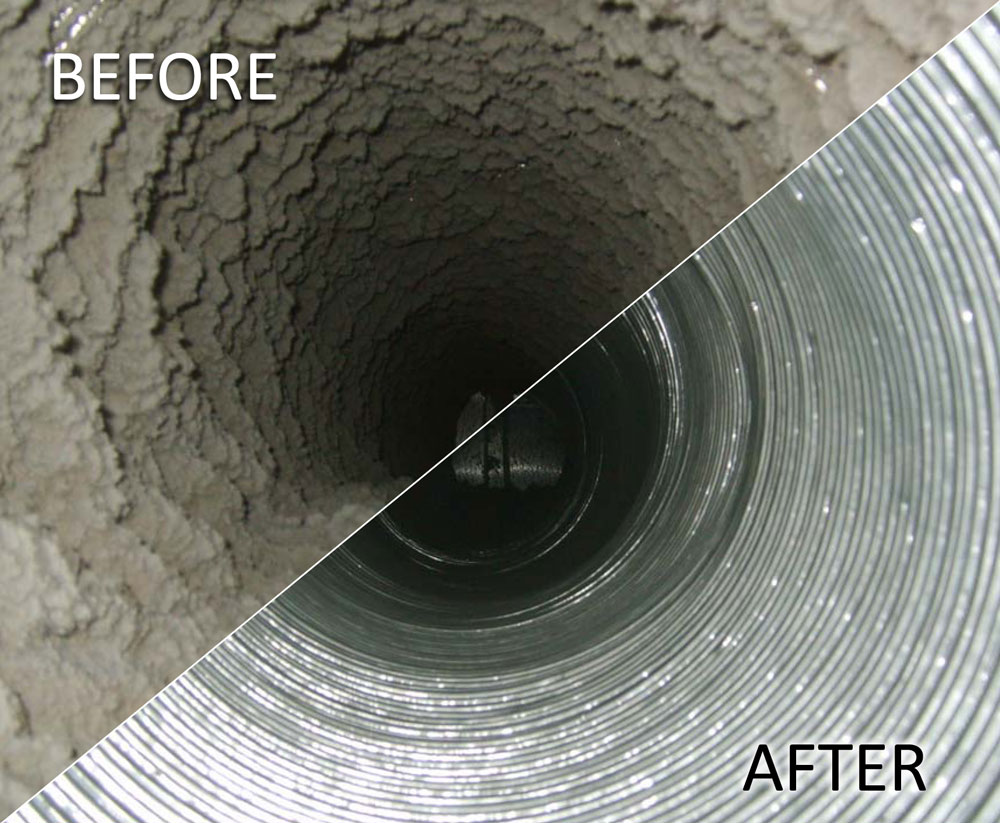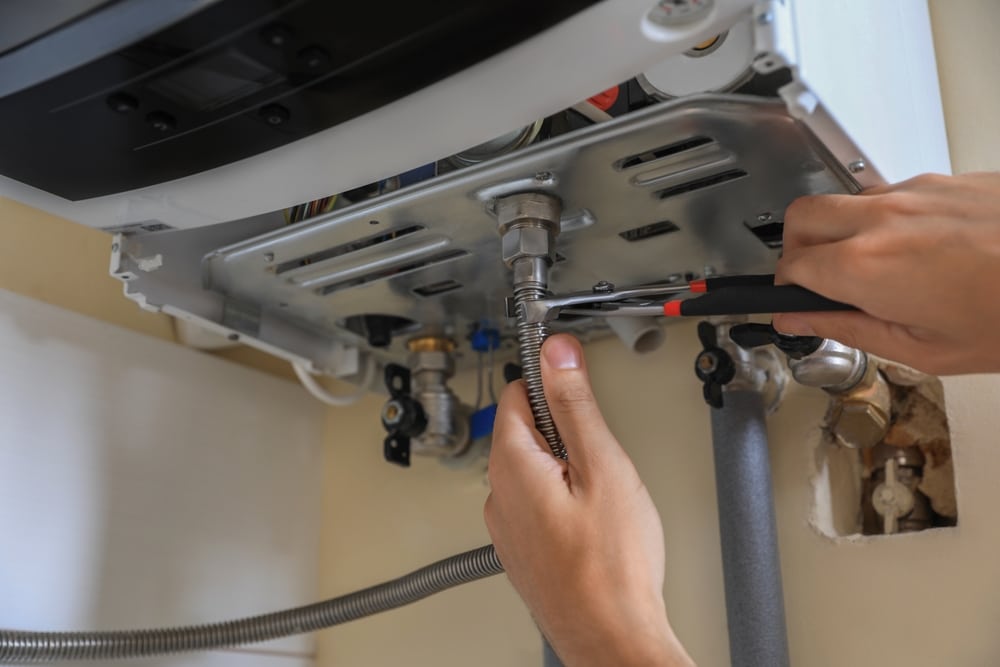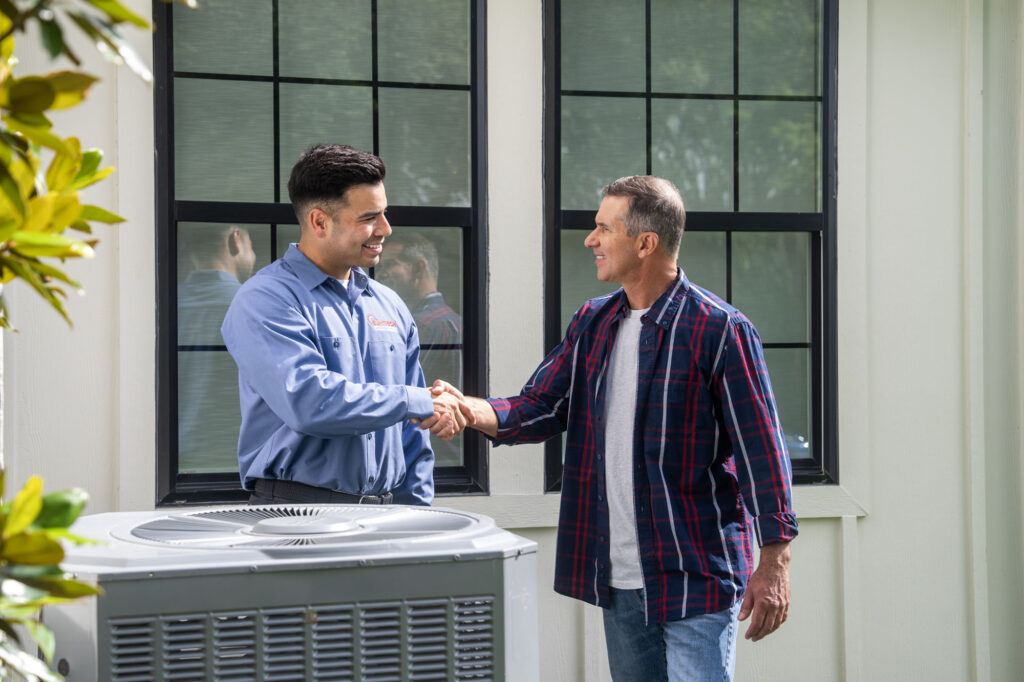Blog
How Hard Water Affects Your Plumbing System Over Time

If you have hard water, you might be thinking, “What’s a little mineral buildup, anyway?” Hard water may not seem like a big deal at first, but it can actually take a toll on your plumbing system.
So, what are the effects of hard water on pipes and plumbing?
This guide explains how hard water plumbing problems form, the long-term effects on pipes, and how the team at Suntech Heat and Air can help. But first, it’s important to understand what hard water even is.
Understanding Hard Water
Hard water refers to water that contains a high concentration of dissolved minerals, mainly calcium and magnesium.
In Oklahoma, hard water is a common issue for homeowners. The region's groundwater often flows through limestone bedrock, which contributes to its hardness.
Consequently, hard water plumbing problems frequently occur, particularly in older homes that lack a water softening system.
Common Signs of Hard Water Damage
Wondering if your plumbing has been affected by mineral buildup? Here are some of the most obvious signs of hard water damage to watch for:
White or Chalky Buildup
One of the most noticeable signs of hard water damage is the formation of mineral deposits around faucets, showerheads, and inside appliances.
Reduced Water Pressure
Over time, scale accumulation inside pipes narrows their internal diameter, which can significantly slow water flow.
Soap Scum and Residue
Having a hard time rinsing away soapy residues? Hard water reacts with soap, leaving behind a filmy layer on sinks, bathtubs, and even your skin and hair.
Stiff or Scratchy Laundry
No one likes scratchy clothing. Minerals can cling to fabrics during the wash cycle, making towels and clothes feel stiff and rough.
Strange Taste or Odor in Water
If you drink tap water that’s hard, you might notice a strange taste. Some homeowners detect a metallic, earthy, or chemical flavor in hard water.
Frequent Repairs on Appliances
Water heaters, dishwashers, and washing machines tend to wear out faster if they’ve been affected by hard water and mineral buildup.
Recognizing these symptoms early can help prevent more serious damage (and expensive repairs) down the road.
The Effects of Hard Water on Pipes and Fixtures
The damage hard water does to plumbing systems doesn’t happen overnight, but it builds up steadily over time. Here’s how hard water compromises your pipes and plumbing fixtures:
Mineral Buildup Narrows Pipe Diameter
As calcium and magnesium settle inside pipes, they form a thick scale that gradually shrinks the space where water flows. This can reduce pressure, disrupt fixture function, and even lead to full blockages in older homes.
Increased Corrosion in Metal Pipes
In homes with galvanized steel or copper plumbing, hard water minerals accelerate the corrosion process. This leads to leaks, discoloration, and even pipe failure.
Premature Wear on Seals, Valves, and Gaskets
Scale deposits can wear down rubber components and clog valve openings, causing toilets to run constantly or faucets to drip.
Water Heater Inefficiency
Mineral scale builds up on the bottom of water heater tanks, acting as an insulating barrier. This forces the heating element to work harder and longer, resulting in higher utility bills and a shorter system lifespan.
These effects of hard water on pipes can eventually cost homeowners thousands over time.
How Hard Water Affects Appliances
Hard water can also damage appliances in addition to your plumbing. Some of the most affected units include:
- Water Heaters - Scale reduces tank capacity and heating efficiency, leading to higher energy use and potential early failure.
- Dishwashers - Internal jets and sprayers can clog from mineral buildup, leaving behind spots and residue on glassware and dishes.
- Washing Machines - Hard water reacts with laundry detergents, leaving soap residue and contributing to poor rinsing, stiff clothes, and mechanical damage.
- Coffee Makers and Ice Machines - Scale can accumulate inside tubes and valves, causing inconsistent flow and poor taste. You’ve likely seen the “descale” button light up if you have a Keurig.
Over time, hard water can cause costly plumbing issues and may require appliance replacements. Luckily, using a water softener or a filtration system can significantly reduce these risks.
For long-term protection, we recommend considering our residential and commercial plumbing services along with our water treatment solutions.
Preventing Hard Water Damage
The best way to stop hard water from damaging your plumbing system is to be proactive about it. Here are practical steps to prevent long-term issues from hard water damage:
Install a Water Softener
A whole-home water softener replaces hard minerals with sodium or potassium ions. This protects your pipes, fixtures, and appliances from scale buildup.
Test Your Water Regularly
Testing your water regularly is a great way to be proactive. Schedule a professional assessment to monitor hardness levels and know when treatment is needed.
Descale with Vinegar or Cleaning Products
Sometimes, the best tools are in your kitchen cabinet. White vinegar is an ideal product that can help dissolve minor limescale on faucets and showerheads.
Maintain Appliances Routinely
The Suntech crew recommends flushing your water heater yearly, cleaning filters, and checking for manufacturer guidance.
Consider a Filtration System
If your water contains other contaminants in addition to hardness, a whole-house filter may be a more effective long-term investment.
When to Call a Professional
While DIY methods can help with mild mineral buildup, persistent hard water plumbing problems often require a trained eye.
If you notice things like…
- Scale returning after repeated cleaning - If buildup keeps coming back, the root issue is still present, usually untreated water hardness.
- Unexplained drops in water pressure - Internal scale accumulation may be blocking pipes or fixtures deep within your plumbing system.
- Appliances failing due to sediment buildup - If your water heater or dishwasher isn’t performing as it used to, scale may be restricting internal flow or damaging valves.
…then it’s time to call a plumber.
A licensed plumber from Suntech Heat and Air can conduct water hardness testing, inspect your plumbing for signs of corrosion, and recommend the right water softener system for your home. Since 1986, we’ve been the trusted local experts for long-term plumbing solutions in the Oklahoma City area.
The Takeaway
Hard water doesn’t have to be hard to deal with.
Recognizing the signs of hard water damage—such as scale buildup, low water pressure, or unpleasant-smelling tap water—is the first step in protecting your plumbing system.
Don’t wait until you’re faced with burst pipes or broken water heaters. Regular water testing and a high-quality softening system can help you avoid costly and complicated plumbing issues in the future.
Concerned About Hard Water? Schedule a Water Quality Test Today.




